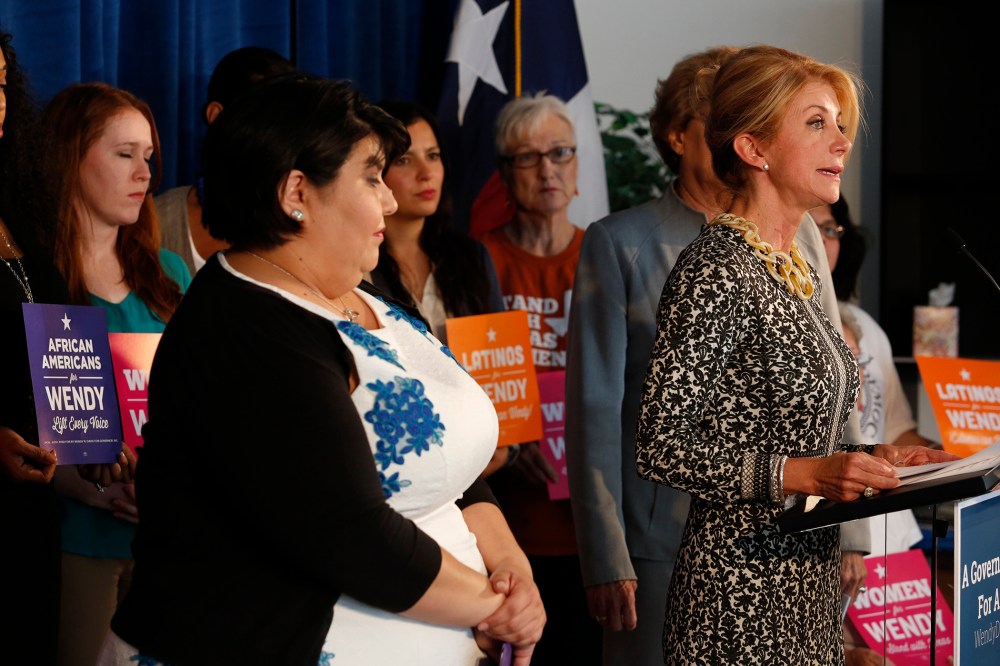The only time President Obama meaningfully talked about women during his speech to the 2012 Democratic National Convention, it was to warn that Republicans want to “control health care choices that women should be making for themselves.”
But when he talks about women now, as he did at the Democratic Women’s Leadership Forum in September, he’s more likely to talk about economics. “Some folks still talk about women’s issues as if they’re something separate, over there, and economics is over here — that’s nonsense. When women succeed, America succeeds,” he said.
He emphasized the point in an entire speech on Friday in Rhode Island dedicated to boosting women’s participation in the economy.
RELATED: What election? Obama talks policy in Rhode Island
That shift is emblematic of the way Democrats across the country, including those on the campaign trail, are talking about issues important to women this year. The moralistic “war on women” has taken a back seat to messages about economic security, and even abortion and contraception are now filtered through an economic lens.
“What we’re seeing Democratic candidates evolve to do is to make the connection between economic security and the health benefits of reproductive rights,” Ilyse Hogue, the president of NARAL Pro Choice America told msnbc. “It’s long overdue.”
Informed by extensive research, Democratic women’s groups have encouraged the move to pocketbook issues. After all, they say, a woman can’t finish school or compete in the workplace if she can’t control when she’s going to become a mother.
“Birth control is only a social issue if you haven’t had to pay for it. It’s all economic issues,” said Stephanie Schriock, the president of the Democratic women’s group Emily’s List at a forum this week in Washington hosted Sirius/XM radio. “What’s driving this election and what’s motivating our women voters in particular are equal pay for women, minimum wage increases, access to full health care, paid sick leave. These are the driving issues.”
RELATED: Planned Parenthood jumps into Georgia race
Not on the list: Bugaboos from 2012 like shutting down abortion clinics, mandatory invasive ultrasounds, and legitimate rape. And that’s not a mistake.
Groups like the Center for American Progress, Planned Parenthood Action Fund, and SEIU, have coalesced around a message of giving women a “fair shot.” On that campaign’s website, the groups list “leadership” and “economic security” above “women’s health.”
The “fair shot” message has popped up in campaign ads for top women candidates from Sen. Jeanne Shaheen in New Hampshire, to Wisconsin gubernatorial candidate Mary Burke to Massachusetts gubernatorial candidate Martha Coakley. And a “toolkit” produced by American Women, an offshoot of Emily’s List, which provides best practices suggestions to Democrats, encourages candidates to “talk about women and their families, not just women.”
It’s not that candidates aren’t talking about choice and contraception, said Geoff Garin, a top Democratic pollster who has worked for Hillary Clinton among others. It’s that they’re working those issues into the broader economic message — “frequently in the very same commercials in a way that says this is person who does not look out for what’s best for women,” he said on a conference call Friday organized by Planned Parenthood Action Fund.
RELATED: North Dakota ruling effectively outlaws drug-based abortions
The New York-based National Institute for Reproductive Health, commissioned a poll in October which they say shows most voters “connect access to safe and legal abortion to financial stability and equal opportunities for women.
Hogue says this evolution is both a recognition of the impact reproductive rights have on economic security, and a response to Republicans’ own evolution on these issues.
Two years ago, Republicans Senate candidates Todd Akin and Richard Murdoch made themselves idea foils with offensive comments about rape. Democrats could convincingly claim that Republicans didn’t understand women by pointing at their comments.
Sandra Fluke, the reproductive rights activist who was viciously attacked by Rush Limbaugh, delivered a prime time speech to the Democratic National Convention that didn’t mention the economy once. Instead, she condemned “the extreme, bigoted voices” inside the GOP.













